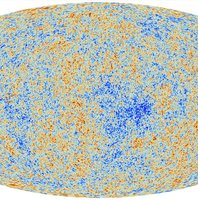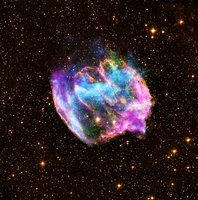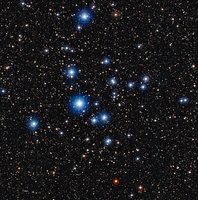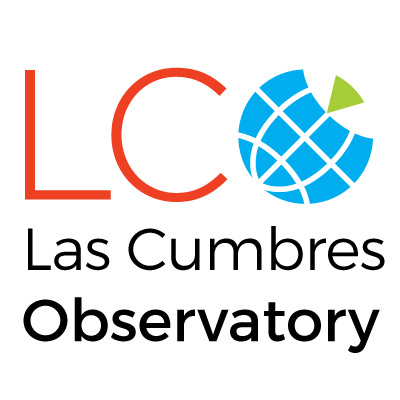The pink galaxy is a new type of galaxy named “red geyser” galaxies. They are named after geysers found on Earth, for example in Iceland and Yellowstone Park in the US. A geyser is a natural pool of hot water that sometimes erupts, sending boiling hot steam and water gushing into the air.
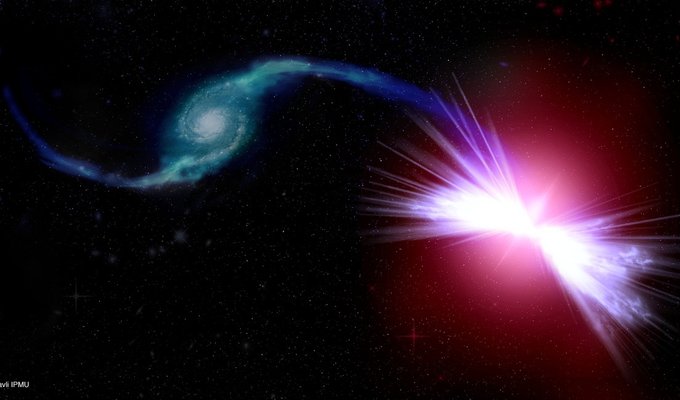
Almost everyone is afraid of the dark at some point in their life. Creaking floorboards, rustling curtains or random bumps in the night will fill them with terror. But it’s not the dark itself we find so terrifying, it’s the fear of what is lurking in the dark.
(A fear of the dark is actually an advantage; it keeps us on our toes in dangerous situations!)
But we all know the boogeyman isn’t real, so is there really anything to be afraid of? Maybe not on Earth, but there are monsters hiding in space — they’re called black holes.
Black holes form when a massive star dies. Anything that gets too close to a black hole is pulled to it with such a strong force that it has no chance of escape. The monster will gobble it up!
To make these monsters even more menacing, black holes are all but invisible. Until they start to feed.
The picture above shows two galaxies, the bright pink galaxy on the right has an enormous, feeding black hole at the centre. If you look closely, you can see a stream of material being sucked from the blue galaxy into the black hole.
Black holes are messy eaters. As it gobbles up material, it is spraying out hot cosmic gas like cookie crumbs. The gas shooting out of the black hole almost look like a giant cosmic explosion in this picture, and it has a similarly devastating effect. The hot gas is heating up the entire galaxy to the point where it is unable to make new stars.
Galaxies start out as star-making machines with a simple recipe: cosmic gas + gravity = stars. Here we have a galaxy that has everything it needs to form new stars, but is isn’t. Now, for the first time, we know why.





